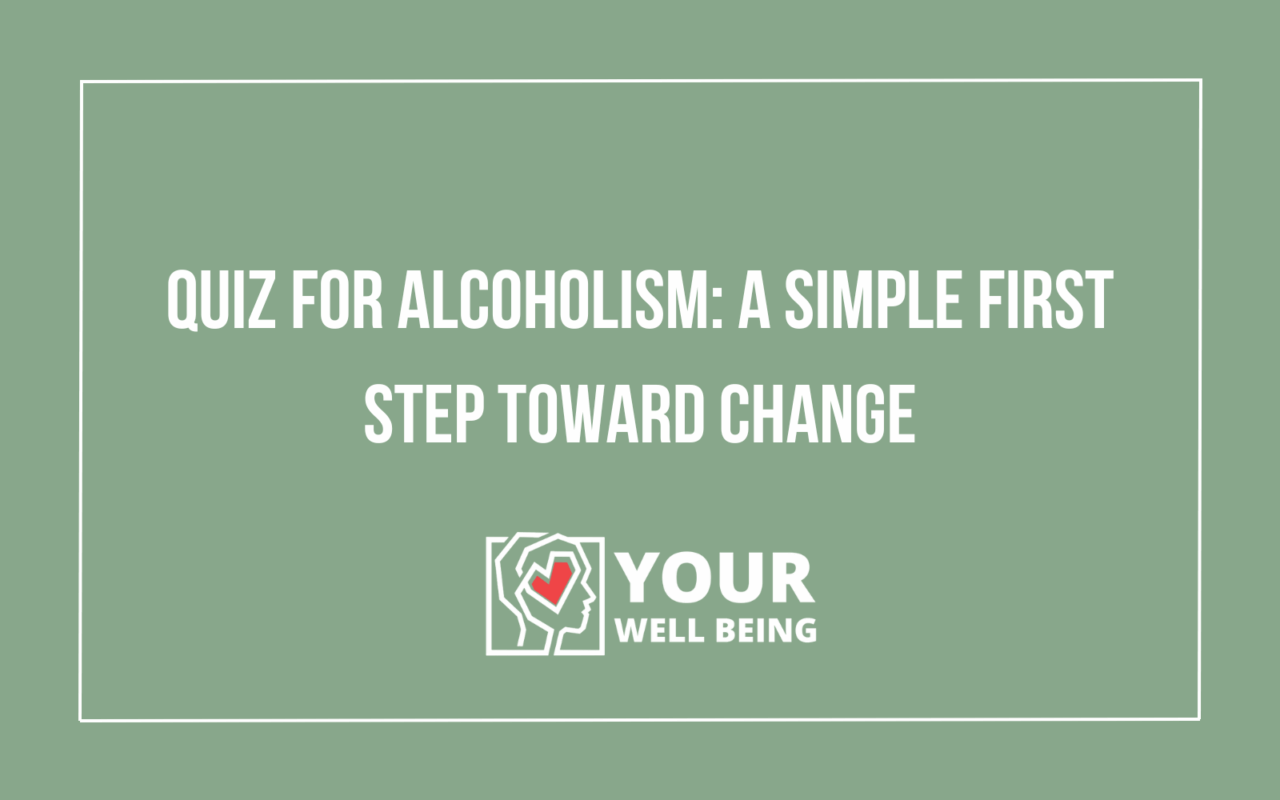Quizzes: A Self Assessment Tool
Recognizing the signs of alcohol dependency can be challenging, especially when it involves yourself or someone close to you. A quiz for alcoholism serves as an accessible starting point for self-reflection and awareness, offering individuals a private opportunity to honestly assess their relationship with alcohol. These screening tools don’t provide medical diagnoses, but they can illuminate patterns and behaviors that may warrant professional attention.
Understanding the Purpose of an Alcoholism Quiz
Taking a quiz for alcoholism represents courage and self-awareness rather than weakness or failure. These assessments are designed to help identify potential warning signs of alcohol use disorder (AUD) through carefully crafted questions about drinking habits, behaviors, and consequences. The primary goal isn’t to label or judge, but rather to provide clarity about whether alcohol consumption has begun affecting various aspects of life. Many people find themselves wondering if their drinking habits have crossed the line from social or occasional use to problematic consumption. A quiz for alcoholism can help bridge this uncertainty by presenting objective questions that encourage honest self-evaluation. These tools typically explore frequency of consumption, inability to control drinking, neglect of responsibilities, relationship impacts, and physical or emotional consequences related to alcohol use. The beauty of using a quiz for alcoholism lies in its accessibility and privacy. Unlike formal medical assessments, these quizzes can be completed in the comfort of one’s home, without immediate pressure to take action or share results with others. This creates a safe space for initial self-discovery and can serve as the foundation for more comprehensive evaluation if concerns are identified.
Key Areas Addressed in Alcohol Assessment Tools
Most reputable quiz for alcoholism instruments examine several critical domains of functioning. These typically include drinking patterns and frequency, tolerance development, withdrawal symptoms, unsuccessful attempts to cut back, time spent obtaining or consuming alcohol, neglect of important activities, and continued use despite negative consequences. Understanding these categories helps individuals recognize how alcohol may be impacting different areas of their lives. Effective alcohol screening tools also explore the emotional and psychological aspects of drinking behavior. Questions may address using alcohol to cope with stress, anxiety, or depression, drinking alone or in secret, feeling guilt or shame about consumption patterns, or experiencing blackouts or memory lapses. These psychological indicators often provide crucial insights into the deeper relationship between an individual and alcohol.
Taking the First Step: Completing Your Assessment
When approaching a quiz for alcoholism, honesty becomes paramount for meaningful results. The temptation to minimize or rationalize drinking behaviors can undermine the assessment’s effectiveness. Remember that these tools are designed to help, not judge, and accurate responses lead to more useful insights about potential concerns. Consider completing the quiz for alcoholism during a time when you can reflect thoughtfully on recent months rather than focusing solely on current circumstances. Alcohol use patterns often fluctuate, and a comprehensive view provides better perspective on overall relationship with alcohol. Some individuals find it helpful to keep a brief drinking diary for a week or two before taking the assessment to gain clearer awareness of their actual consumption patterns. After completing a quiz for alcoholism, take time to review results carefully without immediate emotional reaction. These tools provide information and perspective, not definitive answers about complex personal situations. If results suggest potential concerns, consider this information as one piece of a larger puzzle rather than a final verdict.

Beyond Alcohol: Understanding Substance Use Patterns
While a quiz for alcoholism focuses specifically on alcohol-related concerns, it’s important to recognize that substance use issues often extend beyond a single substance. Many individuals benefit from examining their relationship with various substances to gain a comprehensive understanding of their overall patterns and potential risks.
Cocaine Abuse Quiz & Guide
Cocaine abuse assessments examine several key behavioral and physical indicators that may signal problematic use. These screening tools typically explore frequency and quantity of cocaine use, including powder cocaine and crack cocaine consumption patterns. Important areas of focus include:
• Physical symptoms and tolerance: Questions about needing larger amounts to achieve desired effects, experiencing withdrawal symptoms like fatigue, depression, or intense cravings when not using, and physical health consequences such as nosebleeds, respiratory issues, or cardiovascular problems
• Behavioral and social impacts: Assessment of lying about cocaine use, isolating from family and friends, neglecting work or school responsibilities, engaging in risky behaviors while under the influence, and continuing use despite negative consequences
• Financial and legal consequences: Evaluation of spending excessive money on cocaine, borrowing or stealing money to purchase drugs, facing legal troubles related to possession or behavior while using, and prioritizing drug purchases over essential expenses
• Psychological indicators: Examination of using cocaine to cope with stress or negative emotions, experiencing paranoia or anxiety related to use, obsessive thoughts about obtaining or using cocaine, and inability to control or reduce consumption despite wanting to stop
Methamphetamine Abuse Quiz & Guide
Methamphetamine screening tools address the unique characteristics and consequences associated with this powerful stimulant. These assessments recognize the particularly intense and potentially dangerous nature of methamphetamine use patterns:
• Physical health indicators: Questions about dramatic weight loss, dental problems (“meth mouth”), skin sores or infections, extreme changes in sleep patterns, and hyperthermia or other medical emergencies
• Behavioral and cognitive changes: Assessment of aggressive or violent behavior, repetitive activities like picking at skin, hypervigilance or paranoid thoughts, rapid speech and erratic behavior patterns, and engagement in high-risk sexual behaviors
• Social and occupational dysfunction: Evaluation of job loss or poor work performance, breakdown of relationships with family and friends, involvement in criminal activities to obtain drugs, and abandonment of previously important activities or hobbies
• Psychological and neurological effects: Examination of hallucinations or delusions, severe depression during periods of non-use, memory problems and cognitive impairment, and inability to experience pleasure without the drug
Marijuana Abuse Quiz & Guide
Cannabis abuse screening recognizes that while marijuana is often perceived as less harmful than other substances, problematic use patterns can still develop and significantly impact daily functioning:
• Usage patterns and tolerance: Questions about daily or near-daily marijuana use, needing larger amounts to achieve desired effects, unsuccessful attempts to cut back or quit, and spending significant time obtaining, using, or recovering from marijuana
• Functional impairment: Assessment of declining performance at work or school, avoiding activities that don’t involve marijuana use, giving up important social or recreational activities, and continued use despite awareness of negative consequences
• Physical and psychological dependence: Evaluation of withdrawal symptoms like irritability, anxiety, or sleep disturbances when not using, using marijuana to avoid withdrawal symptoms, and inability to control amount or frequency of use
• Life consequences: Examination of relationship problems related to marijuana use, legal troubles from possession or impaired driving, financial difficulties from drug purchases, and neglect of responsibilities or commitments
Opioids Abuse Quiz & Guide
Opioid abuse assessments address both prescription opioid misuse and illicit opioid use, recognizing the complex nature of opioid use disorder and its potentially life-threatening consequences:
• Prescription misuse patterns: Questions about taking medications in larger amounts or more frequently than prescribed, using prescription opioids not prescribed to you, combining opioids with alcohol or other substances, and “doctor shopping” to obtain multiple prescriptions
• Physical dependence indicators: Assessment of withdrawal symptoms like nausea, muscle aches, restlessness, and anxiety when not using, tolerance requiring increased doses for pain relief or desired effects, and unsuccessful attempts to reduce or control opioid use
• Behavioral changes and consequences: Evaluation of isolating from family and friends, engaging in illegal activities to obtain drugs, neglecting personal hygiene or appearance, and continued use despite serious negative consequences
• Risk factors and danger signs: Examination of thoughts of self-harm or suicide, overdose experiences or near-misses, injection drug use and associated health risks, and inability to manage daily responsibilities without opioids
Nicotine Abuse Quiz & Guide
Nicotine dependence screening addresses tobacco use in all forms, including cigarettes, cigars, chewing tobacco, and newer products like e-cigarettes and vaping devices:
• Physical dependence patterns: Questions about smoking within minutes of waking up, difficulty going without tobacco for extended periods, continuing to smoke despite illness, and experiencing withdrawal symptoms like irritability or difficulty concentrating when attempting to quit
• Consumption patterns and escalation: Assessment of increased tobacco use over time, smoking more than originally intended, unsuccessful quit attempts, and prioritizing tobacco use over other activities or financial responsibilities
• Health awareness and continued use: Evaluation of continued smoking despite awareness of health risks, smoking-related health problems, advice from healthcare providers to quit, and impact on family members through secondhand smoke exposure
• Social and occupational impacts: Examination of smoking in prohibited areas, avoiding social situations where smoking isn’t allowed, relationship problems related to tobacco use, and workplace difficulties due to smoking breaks or odor
Prescription Drug Abuse Quiz & Guide
Prescription drug abuse screening addresses the misuse of various categories of prescription medications, including but not limited to opioid painkillers, benzodiazepines, and stimulant medications:
• Misuse patterns and escalation: Questions about taking medications differently than prescribed, using someone else’s prescription medications, combining prescription drugs with alcohol or other substances, and obtaining prescriptions through deceptive means
• Behavioral indicators: Assessment of hiding or lying about prescription drug use, “doctor shopping” to obtain multiple prescriptions, stealing or borrowing medications from others, and continuing use despite negative consequences
• Physical and psychological dependence: Evaluation of withdrawal symptoms when not using prescribed medications, tolerance requiring increased doses, inability to function normally without medications not medically necessary, and unsuccessful attempts to reduce or stop use
• Life consequences and risks: Examination of legal troubles related to prescription fraud, relationship problems caused by medication misuse, financial difficulties from purchasing medications illegally, and dangerous combinations or overdose risks
Moving Forward: When Quiz Results Suggest Concern
If a quiz for alcoholism or any substance abuse screening tool indicates potential concerns, remember that this represents an opportunity rather than a crisis. These results provide valuable information that can guide next steps toward improved health and well-being. Professional assessment, counseling, support groups, medical evaluation, and treatment programs all represent potential pathways forward. The journey toward recovery and healthier relationships with substances often begins with exactly this type of self-assessment. A quiz for alcoholism or other substance screening serves as a bridge between uncertainty and clarity, offering the first step toward positive change. Whether results indicate minimal concern or suggest significant issues, the act of honest self-evaluation demonstrates commitment to personal growth and well-being. Taking a quiz for alcoholism requires courage, and acting on concerning results requires even more. However, millions of individuals have successfully navigated these challenges with appropriate support and resources. The path forward may seem uncertain, but it begins with the simple act of honest self-assessment and willingness to seek help when needed.
Conclusion
The completion of a quiz for alcoholism marks just the beginning of a potentially transformative journey toward improved health and well-being. Many individuals find that the insights gained from these assessments provide crucial motivation for implementing positive changes in their lives, whether those changes involve moderating alcohol consumption, seeking professional treatment, or exploring underlying factors that contribute to problematic drinking patterns. The self-awareness cultivated through honest assessment creates opportunities for meaningful conversations with healthcare providers, counselors, family members, and trusted friends who can provide ongoing support and guidance. Additionally, understanding personal risk factors and triggers identified through screening tools enables individuals to develop more effective coping strategies and make informed decisions about their relationship with alcohol moving forward. While change can feel overwhelming initially, breaking the process into manageable steps—beginning with a simple quiz for alcoholism—creates a sustainable foundation for long-term recovery and personal growth. Don’t wait any longer and visit our website to schedule a consultation today! Remember that seeking help demonstrates strength rather than weakness, and countless resources exist to support individuals at every stage of their journey toward healthier relationships with alcohol and other substances.


